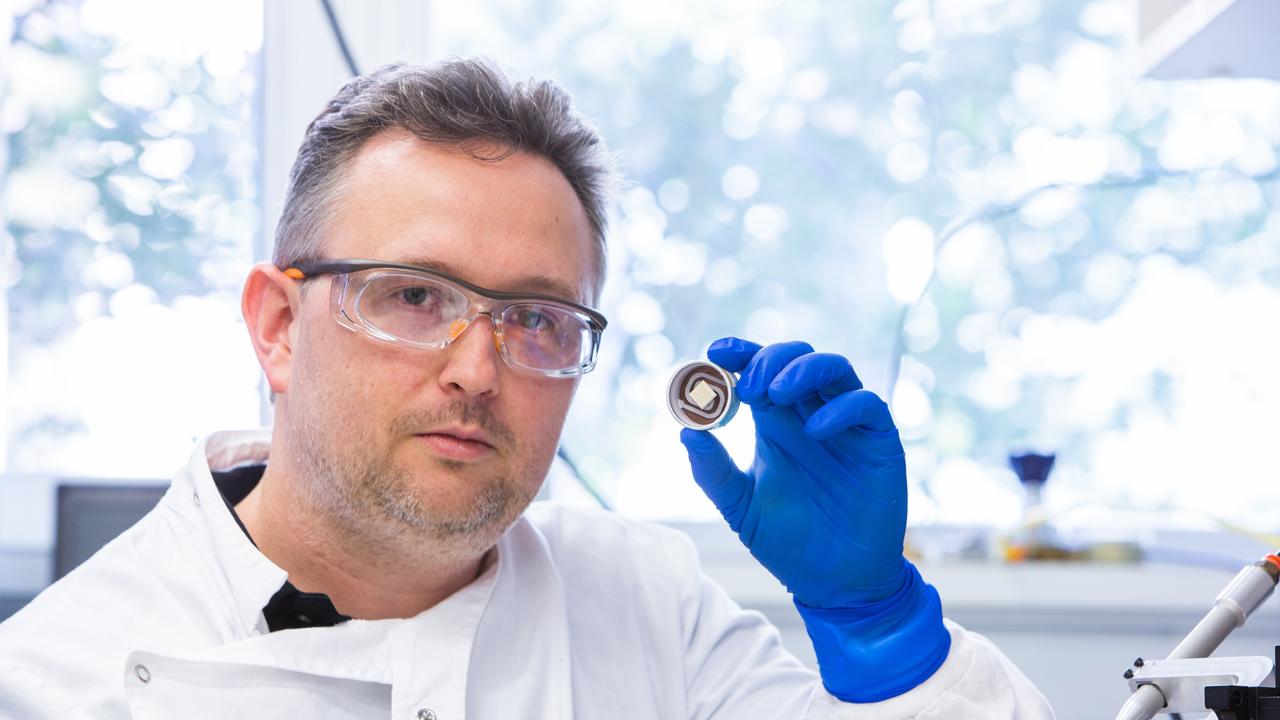Covid vaccine: Qld researchers close to developing a ‘patch’ that could replace injections
The days of the Covid-19 jab could be numbered, with Queensland researchers one step closer to proving a vaccine can be successfully self-administered through a needle-free “patch”. Here’s when it’s likely to become available.
The days of the Covid-19 “jab” could be numbered, with Queensland researchers one step closer to proving a vaccine can be successfully delivered through a needle-free “patch”.
And the technology could benefit more than those fearful of needles, with hopes the easy-to-use patch means a single-dose vaccine could be easily distributed and self-administered – a chance to improve vaccination rates globally.
University of Queensland researchers, in a study to be released in the journal Science Advances, were able to successfully protect mice from Covid-19 after inoculating them with a US-developed vaccine administered with the patch.

The vaccine known as “Hexapro” is being developed by the University of Texas as a single-dose spike protein jab.
The UQ-developed “high-density microarray patch”, commercialised by Brisbane-based company Vaxxas, allows the vaccine to be delivered with a “single, pain free ‘click’ from a pocket-sized applicator”.
Lead researcher Dr David Muller said the team was now ready to proceed to Phase 1 clinical trials, and are hoping to secure funding to commence from early 2022.

“Hexapro, delivered by the high-density microarray patch, could dramatically assist global vaccine rollout effort, particularly for billions of vulnerable people in low- and middle-income countries,” he said.
“It’s much more user-friendly than a needle – you simply ‘click’ an applicator on the skin, and 5000 microscopic projections almost-imperceptibly deliver vaccine into the skin.”
He said the global team of researchers were positioning the delivery of the vaccine via the patch technology as a way for people to get their booster shots.

Dr Muller said administering the vaccine with a patch through the skin, instead of the traditional needle, had also shown to prompt a faster immune response onset.
Researchers also found the vaccine, when dry-coated on the patch, could withstand temperatures of 25C for a month or 40C for a week, meaning it would be easier to transport and store particularly in low income areas.
So far the vaccine has been found to protect against a broad range of SARS-CoV-2 viruses, including the original strain of Covid-19 and the Alpha and Beta mutations.
Vaxxas chief executive David Hoey said the prospect of a single-dose vaccine easily distributed and self-administered through the patch would “greatly improve global pandemic vaccination capabilities”.





